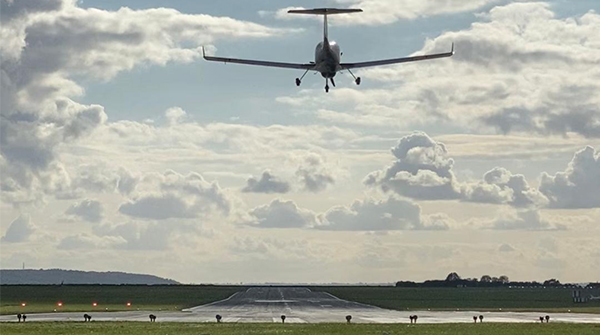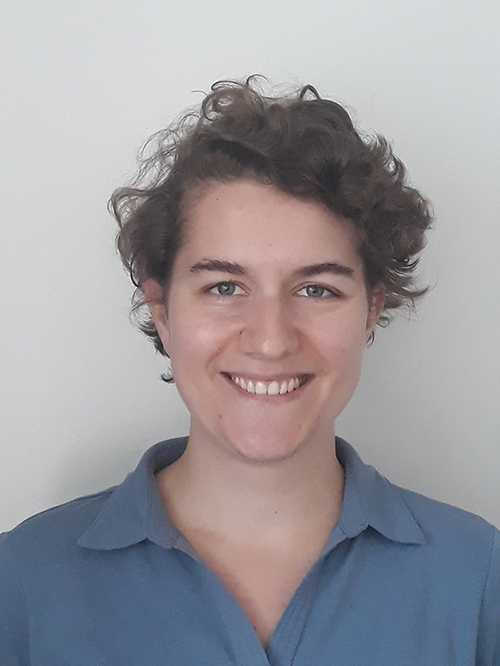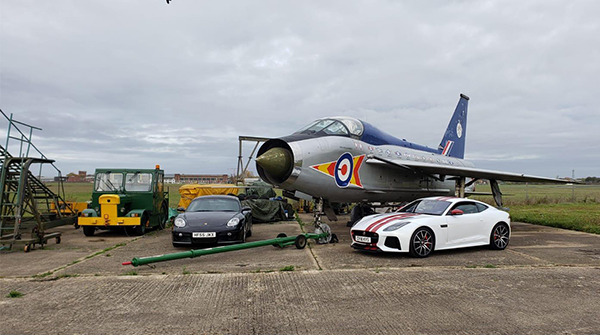My Cranfield course: Pre-master’s in Engineering
23/11/2020

Hi! We are Zoe and Céline, and we’ve both just started on Cranfield’s Pre-master’s in Engineering course. In this series of blogs, we hope to share with you our journey through the course as we prepare for our master’s year at Cranfield.
What are our backgrounds?
I, Zoe completed a Chemistry degree at the University of Bristol before joining BAE Systems on their graduate programme. After three years in the company, I had progressed to Senior Engineer but felt that I was missing some key theoretical knowledge that would prevent me from becoming a better engineer. I also decided that I should follow my passion of working in the aerospace (especially space) industry, so decided to combine the two and pursue a Pre-master’s in Engineering at Cranfield, followed by an MSc in Astronautics and Space Engineering.

I, Céline completed an MSc in both Economics and Space Studies at the Catholic University of Leuven in Belgium. Hereafter I was very lucky to join the Young Graduate Trainee program at the European Space Agency (ESA) as an Economic Business Analyst. However, just like Zoe, I felt that I was missing some key theoretical knowledge that would prevent me from becoming a better engineer, especially in the private (space) industry. I think Cranfield’s pre-master’s as preparation for a follow-up master is the perfect opportunity to make this happen.

What’s the Pre-master’s in Engineering about?
The Pre-master’s programme is specifically designed to help students from non-traditional academic backgrounds to develop the knowledge and skills to be able to succeed on Cranfield’s master’s degrees (list on the course website). It is broken into twelve taught units and an independent research project and examined by a mixture of coursework and formal exams. So far this term, we’ve studied Basic Aerodynamics, Aerospace Engineering, Maths, Computing, and Engineering Stress Analysis. My notes for Aerospace Engineering are full of high-speed sketches of aircraft and aircraft systems!

What’s the teaching like?
With the pandemic, roughly half of our modules so far have been taught face-to-face. Lecture recordings and slides are always available, and the lecturers are really helpful – we also run regular peer-to-peer review sessions. The students on our course have a really diverse range of backgrounds and previous experience, so we all help each other out! Most of the core texts for our course are available online, and the library has set up a “click and collect” service if you need anything else.
What extra-curriculars are there?
Both of us have joined the Cranfield Students for the Exploration and Development of Space (CRANSEDS) which is really exciting! They are going ahead with several projects for now, including building rockets for UK and EU competitions, rovers, and a rocket motor test stand. Other societies still running during lockdown include the Astronomical Society, who have been hosting a range of fascinating talks; the Cranfield Students’ Association is also hosting a range of activities.

In addition, Cranfield University has many facilities for taking part in sporting, recreational, and social activities. There is a fitness centre, playing fields, sports pitches, and several tennis courts, which is an ideal way to relax away from your academic work and meet new people. And even with the current Covid-19 situation, Cranfield has put much effort into looking for alternatives or to make it happen in a safe way.
That’s all for now – look out for our next blog, as we submit coursework and head into exam season!
Find out more information on this course; Pre-master’s in Engineering.
Categories & Tags:
Leave a comment on this post:
You might also like…
Keren Tuv: My Cranfield experience studying Renewable Energy
Hello, my name is Keren, I am from London, UK, and I am studying Renewable Energy MSc. My journey to discovering Cranfield University began when I first decided to return to academia to pursue ...
3D Metal Manufacturing in space: A look into the future
David Rico Sierra, Research Fellow in Additive Manufacturing, was recently involved in an exciting project to manufacture parts using 3D printers in space. Here he reflects on his time working with Airbus in Toulouse… ...
A Legacy of Courage: From India to Britain, Three Generations Find Their Home
My story begins with my grandfather, who plucked up the courage to travel aboard at the age of 22 and start a new life in the UK. I don’t think he would have thought that ...
Cranfield to JLR: mastering mechatronics for a dream career
My name is Jerin Tom, and in 2023 I graduated from Cranfield with an MSc in Automotive Mechatronics. Originally from India, I've always been fascinated by the world of automobiles. Why Cranfield and the ...
Bringing the vision of advanced air mobility closer to reality
Experts at Cranfield University led by Professor Antonios Tsourdos, Head of the Autonomous and Cyber-Physical Systems Centre, are part of the Air Mobility Ecosystem Consortium (AMEC), which aims to demonstrate the commercial and operational ...
Using grey literature in your research: A short guide
As you research and write your thesis, you might come across, or be looking for, ‘grey literature’. This is quite simply material that is either unpublished, or published but not in a commercial form. Types ...






